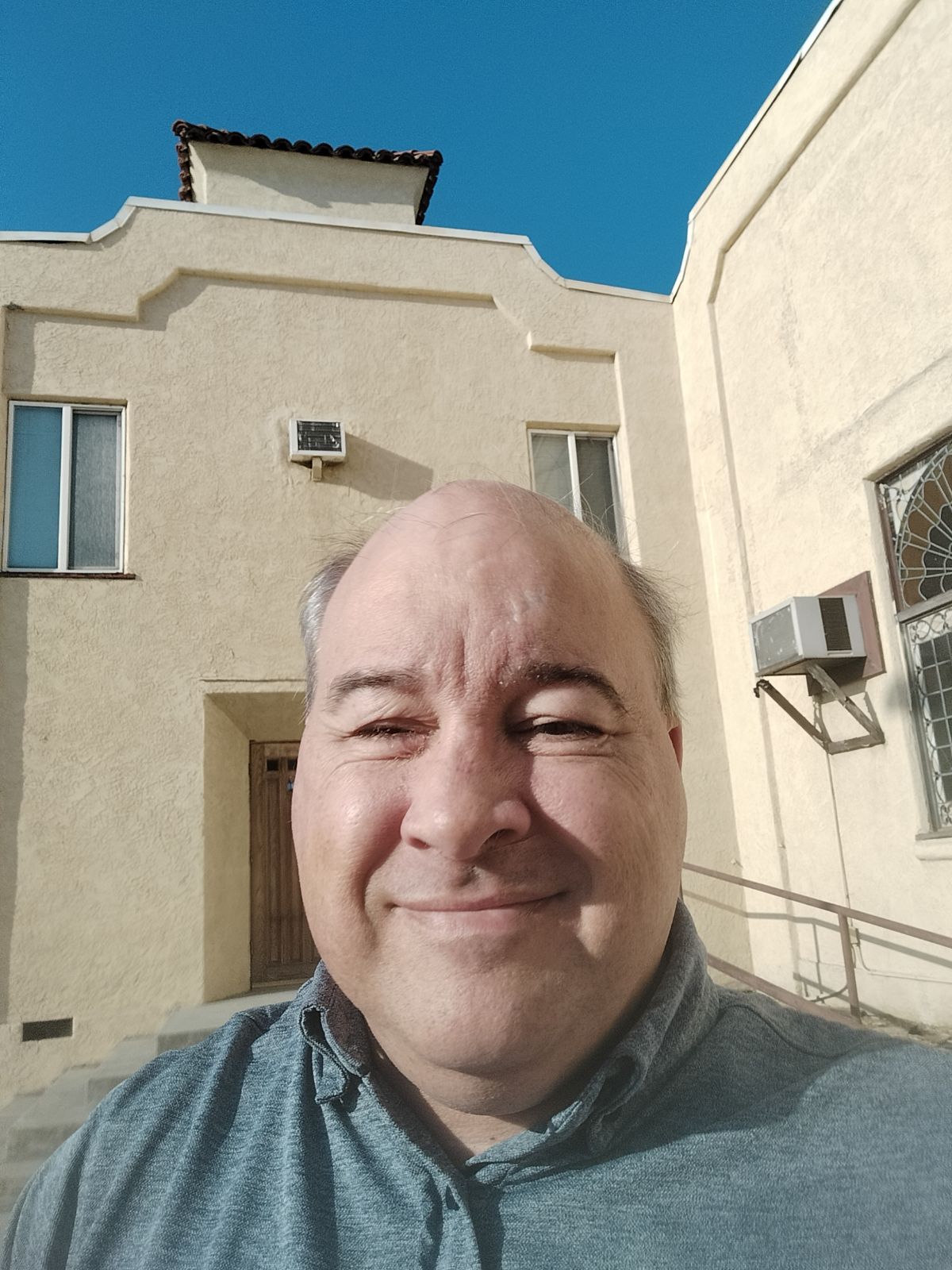There is the music of Johann Sebastian Bach.
Therefore there must be a God.You either see this one or you don’t
Peter Kreeft
I came across this quote from Peter Kreeft several months ago – well after the seeds of my previous article on Bach and the many disciplines required to make music. I had the same epiphany Kreeft did when listening to Bach; something special is going on there.
My exact thought was something more like this: to think that what I just heard was the result of some evolutionary process is REDICULOUS!
That may seem simple or uncouth, but I’m just being honest. When people talk about having their minds blown, that is literally what happened to me. I’m not sure what was so special about listening to Bach at that particular time. I had listened to his music a lot before. But, at that moment, it was as if all of these new pathways in my mind had just connected, and the realizations just kept coming (most of which I wrote about in the previously mentioned article).
I have some training in theology, apologetics, and philosophy, so I immediately saw the value in this thought. The question that needs answering is this:
Is music evidence for God?
Right now, I’m leaning towards “yes”. But this answer is born out of observation and a limited knowledge of biology, evolution, anthropology, philosophy, and music. Most of the time, when these types of thoughts pop up, though, more questions get raised than answered.
My plan for the rest of this article is to outline some of those questions. These are still questions I am searching for the answers to. As Timothy Williard mentioned in one of his latest articles on deep study, part of the study process is to write down what you’ve learned and talk about it with others. So that’s what this will be; this will be a place where I write out what I’m chewing on with these topics to try and come to some reasonable conclusions. Hopefully, others will take part in that conversation as well.
The Questions
Question 1: What Role Does Observation Play In Justification of Belief?
My entire premise started with an observation. I listened to some music, thought about the skills required to create that listening experience, thought about the skills of species of animals, and saw a vast chasm between the two. I weighed the most popular explanation – that we are a result of an evolutionary process – and thought it didn’t explain the gap very well. Therefore, there had to be a different explanation.
This observation goes against much of what has been written on the subject of humanity and music. There are stacks and stacks of books that discuss music as part of the evolutionary process. So, should I blindly trust the people who have already written on this topic? Or do I have justification to explore a different path?
At this stage, my thesis is just a hunch, an intuition. And I certainly don’t believe that instincts and hunches born of observation are always right. For example, for centuries, every new generation of Christians has a few that believe the End Times are at hand because of signs they have observed. Someone is always pointing to political figures, technological advances, and weather patterns as evidence that The End is nigh. And yet, here we still are.
But observation and hunches have to play some part in discovery. Progress is full of tales of people being unsatisfied with current explanations and searching for a better way. So, what role does that play? And how much can we trust it?
Question 2: Why Do Humans Make Music?
This question has a lot of other related questions attached to it. Do humans make music for different reasons than animals that make similar sounds? Are they similar sounds? If humans are part of an evolutionary chain, then all of our motivations should also be explained by that process. Is music more than just a method of communication? If humans make music for special reasons that cannot be traced back to animal ancestors, does that make humans special?
There are a couple of philosophical arguments for the existence of God that fit into this question. One is known as the Argument From Desire. Songs contain emotion in both their sonic properties and lyrical content. So many songs are written about how messed up things are or what a better life looks like. As if we have an innate sense that the world is messed up and ought to be better. In other words, because we desire the Better Place it must exist.
Another argument is the Argument From Aesthetics. Do we make some music for its beauty? The quote at the beginning of this article can be found on Peter Krefft’s website under The Argument For Aesthetics. Bach’s music is so rich, so full, so beautiful that it moves and stirs us in ways that transcend utilitarian purpose. Does our perception of beauty transcend people’s individual preferences? Or is it baked into the evolutionary cake?
Question 3: What Are The Consequences On Music If Naturalism Is True?
Every worldview has consequences. If we think a particular world view is true, we need to follow it to its logical conclusion to see how those conclusions sit with us. Do those logical conclusions contradict any other positions we hold? Or do they take us to dark places we know one should not go?
If atheism is true, then it seems that all that exists are the physical things in front of us that we can touch, see, taste, smell, and hear. There is nothing outside of that. But when we engage with things like music, they seem to have meaning and purpose. Can those things be present and real if naturalism is true?
Question 4: Where Is The Music?
One of atheism’s biggest problems is known as the problem of Mind. If naturalism is true, then all we are are our brains. But when you “hear” music in your head, where is that? Can a doctor use some instrument to point to a location in your brain and say, “ah hah! He is hearing Brain Damage by Pink Floyd right now!”
The explanation that Christianity offers is that we exist as body AND mind. But what is the evidence for that? If a doctor probes a particular part of my brain, can he make me hear Beethoven’s 5th? If he can, does that mean all I am is my brain?
Question 5: Is Music General Revelation?
Christians believe in what is known as the Doctrine of General Revelation. We believe that when you look up at the night sky, when you stare across a forest-covered mountain range, when you look upon the face of your newborn child, there are times when you can’t help but wonder how it all got here. And you feel like something bigger is behind it all. Random acts of nature just don’t seem to give a satisfying explanation.
Is music like this? Is music something special that should make us wonder about why it is so special and why we connect with it the way we do? Does the mere fact that we create music point to something that transcends humanity?
Question 6: What Does Music Say About God?
This question presupposes that God exists, and it asks questions about Theology Proper – or The Doctrine of God and his attributes. What does music say about God’s attributes? If God created everything, did he create music? He created sound, and he gave us ears. Did he intentionally ascribe beauty to certain sounds in nature and shrill discord to others? If this was intentional, then it reflects his value of aesthetics on the things he creates.
If we are created in God’s image (imago dei), do we create music because God makes music? Do we create music because God loves music?
In Search Of Answers
Being a life-long lover of music has led me to this moment where now I have a lot of questions to ask about this thing I love so much. I’m further down the road already on some of these questions. A lot of them I’m not sure about where they will lead. But these are all roads I am excited to go down.
I mentioned earlier that I have some training in these areas. None of it is formal. I don’t have a degree in any of this stuff. And none of it applies to my professional career as a Director of Information Technology. My training comes from hours and hours of self-study, or immersing myself in topics I love and enjoy going deeper on.
If you are a seeker of answers to questions, I hope you find the above statement comforting and encouraging. Given the age we live in, there is no excuse for regular people not to find answers to the questions that matter to them. I have access to the primary sources for these topics as I sit here in my kitchen just the same as people enrolled in academic programs. All it takes on our part is time and dedication.
The journey has begun. The path is unknown. The road is wide enough for you if you want to join. And the Travel Song is calling us forward. You’ll hear it if you only listen.

David is an author and speaker with Legati Christi where he has written about and spoken on multiple apologetic and theological topics for the past 6 years. He recently launched Theology In Music as a way to combine his love of theology with his other passion in life – music.

Leave a Reply